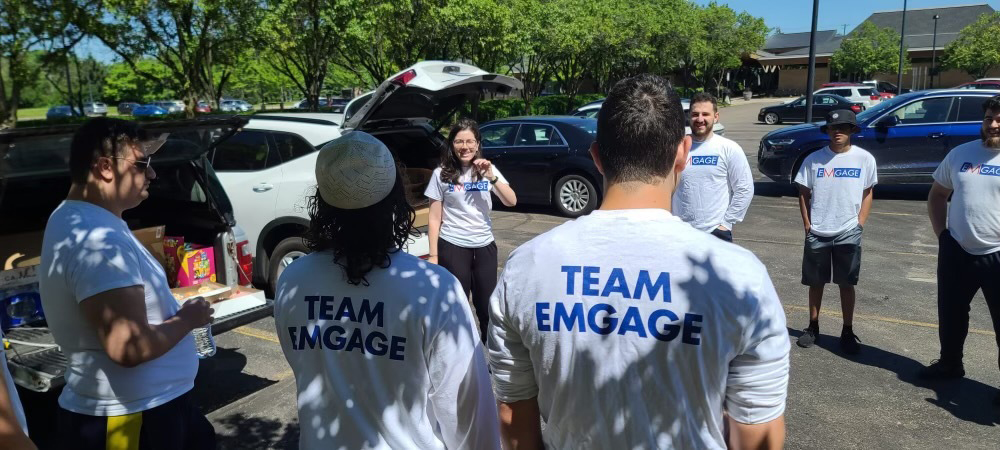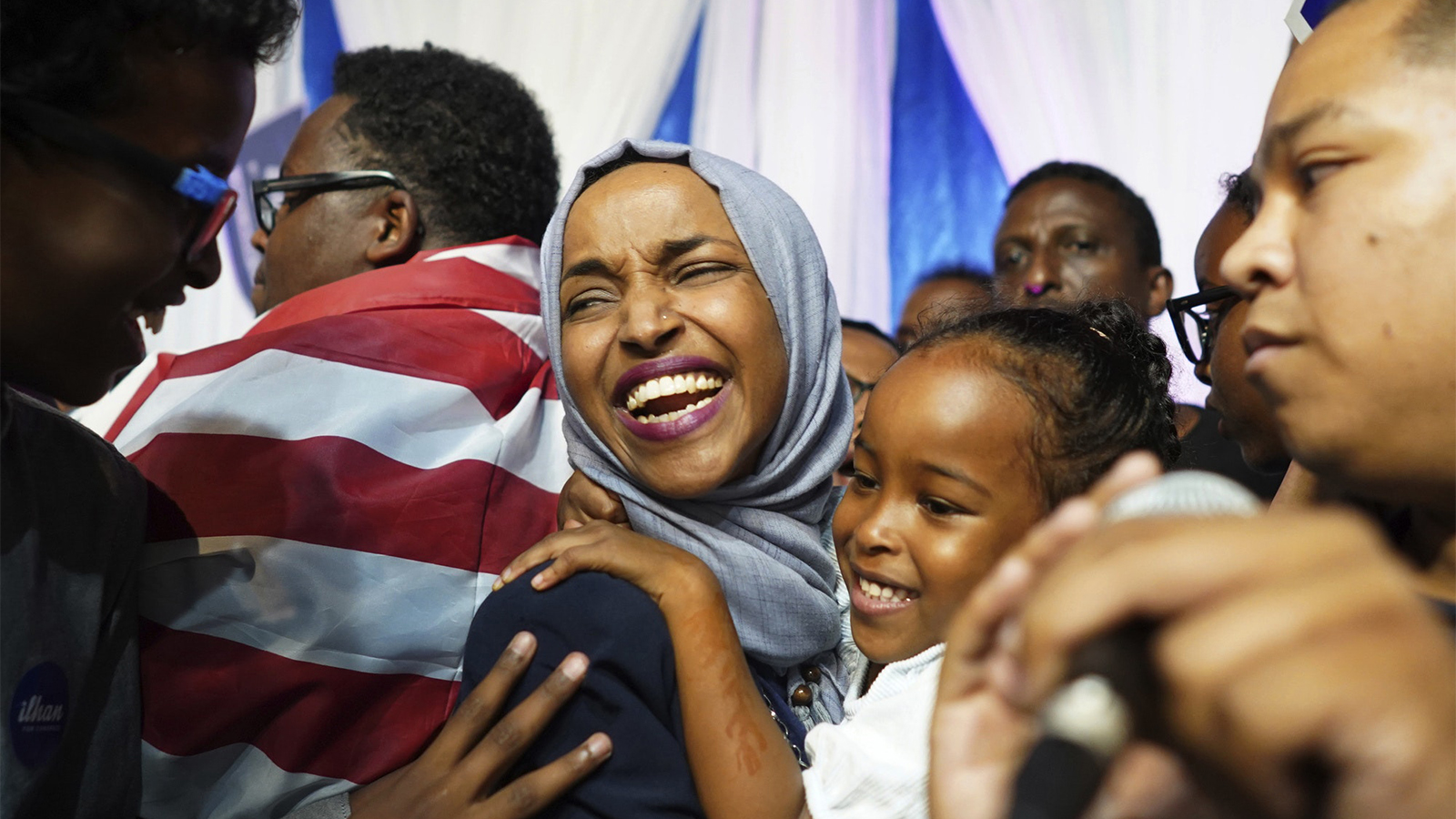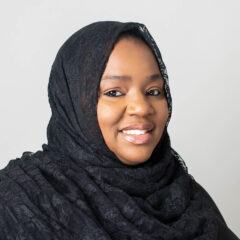
(RNS) — Ninety-seven years ago, Carter G. Woodson began his campaign to initiate Negro History Week, which would later become Black History Month, to celebrate the rich history of African Americans’ contribution to this country. But even then, the legacy of Black Muslim Americans was at times intentionally left out.
Islam was largely introduced to the United States during the trans-Atlantic slave trade as West African captives were brought to the shores of the Carolinas and Virginia to be sold as chattel for free labor. As their feet, shackled, settled in the dirt of an unknown land, they struggled not only to keep their human dignity intact in a slavery system that was developed to destroy it, they struggled to hold onto their layered identities. Their tribal identity, their language, their traditions — and, for many, their worship and their practice of Islam — was taken away in order to make them docile and obedient to inhumane treatment.
I have said often that the silencing of Islam from the historical narrative of Africans and Afro-descendants in America today is irresponsible and dangerous. This is especially troubling since it was the Black struggle for freedom in America that opened up its borders to our brothers and sisters from abroad. The Civil Rights Act of 1964, which guaranteed equal treatment in society to African Americans, directly led to the Immigration and Nationality Act of 1965 that vastly expanded immigration to America from Muslim-majority countries.
African American Muslims make up close to 20% of the Muslim American population, often leading the way for all Muslims in the area of civil activism and the pursuit of justice for all. Following 9/11, African American Muslim communities calmed the fears of their immigrant brothers and sisters who had never experienced such discrimination and hatred, teaching them how to survive what African Americans, both Muslim and of other faith traditions, have lived with since the end of the Civil War.
If non-Black Muslim Americans could get over their anti-Blackness and sincerely understand that Islam has existed in America since the nation’s inception vis-a-vis enslaved West African Muslims, we would have much stronger arguments against policies like the Muslim Ban — which fallaciously perpetuate the idea that Muslims and Islam are new and foreign to America. Rather, Muslim Americans are an essential component of America; the contributions of enslaved Black Muslim Americans can be gleaned even through Blues music, which modern musicologists are now postulating may derive from the tune of the Islamic call to prayer, the adhan.
In this light, arguments in favor of policies like the Muslim Ban become even more absurd; Muslims and Islam cannot be banned from this country because Islam is an inherently American religion.
Three years ago, I wrote an op-ed for the Philadelphia Tribune stating that Muslim Americans will never become as powerful as we can be until our communities learn to work better together. This means working with Black Muslim American communities and recognizing their value and their needs.
Emgage Michigan workers organize before knocking on doors in Detroit suburbs before August 2022 primaries. Photo courtesy of Emgage
Over the past few years, we have seen strides in this area, such as Emgage’s Million Muslim Votes initiative, which helped turn out an unprecedented 1 million-plus Muslim American voters. The Black Muslim American vote in Philadelphia largely contributed to President Biden’s victory in Pennsylvania, which helped him win the 2020 election. In 2022, during the midterm elections, once again Pennsylvanian Muslims helped to make history, endorsing John Fetterman for U.S. senator. The list goes on, too long to measure, as Black Muslim Americans continue to pave their own path as a powerful bloc.
These achievements are exciting but are just the beginning. It’s not enough to recognize that this unified community is possible: We have seen it is, and it is strong when it works together. We now have to go a step further. It’s not enough simply to acknowledge the power of the whole Muslim American community. We now must recognize the particular excellence of the Black Muslim American community. In this community is true excellence that should be celebrated through all communities, not just the Muslim American community.
This community has long been underrepresented and under-covered in the wider Muslim American community and deserves to be celebrated. The power of the community isn’t just in voting power. It touches all fields — education, health care, climate and environmental action, law, politics and more.
In education there is Dr. Khalid Mu’min, recently appointed secretary of education for the Commonwealth of Pennsylvania, and Sharif El-Mekki, founder of the Center for Black Educator Development who is paving the way for Black male educators and working to eradicate the issue of the school-to-prison pipeline. In health care, there is Dr. Safiyya Shabazz, owner and medical director of Fountain Medical Associates, and Dr. Noor Jihan Abdul-Haqq, a pediatrician celebrated for her outstanding work in service to low-income families in Oklahoma City. For climate/environment we have Dr. Katera Moore, who was recently appointed as the state of Delaware’s first environmental justice coordinator. In law we have Raheemah Abdulaleem, who serves as the general counsel and special assistant to President Biden, and Intisar Rabb, professor of law at Harvard Law School.

Minnesota state Rep. Ilhan Omar, center, celebrates after her congressional 5th District primary victory on Aug. 14, 2018, in Minneapolis. (Mark Vancleave/Star Tribune via AP)
There are a number of history-making Black Muslim Americans who have been elected to public office, including Minnesota Attorney General Keith Ellison; Pennsylvania State Senator Sharif Street, who is also chairman of the PA Democratic Party; Congresswoman Ilhan Omar (D-Minn.); Congressman André Carson (D-Ind.); State Representative Mauree Turner (D-Okla.); State Representative Madinah Wilson-Anton (D-Del.); and Judge Fatima El-Amin (Ga.), who was recently appointed as chief judge of the Dekalb County Juvenile Court. This list is not exhaustive but includes a small fraction of the talent represented within the Black Muslim community.
Make no mistake: We can create an America that is more conducive to Black Muslim American excellence and inclusivity. Emgage, where I work, is one organization doing meaningful work to bridge the gap. Throughout Black History Month, we have made it a point to celebrate Black Muslim history makers and hosted a town hall to honor the legacy of Black Muslims, as well as a private luncheon in D.C. with members of Congress and Black Muslim leaders from across the nation.
Beyond Black History Month, Emgage will continue to develop our African American Policy Advisory Group, a collective of African American influencers, academics, policy experts and community organizers convened for the purpose of forming a policy platform of important issues to the African American community by the African American community.

Salima Suswell. Photo courtesy of Emgage
Let’s take this Black History Month to truly celebrate Black Muslim American excellence and commit ourselves to celebrating and supporting these individuals, particularly as they demonstrate their power in the years to come (including during the 2024 election). Let’s work to cultivate a society that supports and uplifts Black Muslim communities and condemns anti-Blackness everywhere.
(Salima Suswell serves as national senior organizing advisor and Pennsylvania executive director for Emgage, the nation’s largest Muslim American civic engagement organization. She is a nationally renowned leader in advocacy and policy initiatives. The views expressed in this commentary do not necessarily reflect those of Religion News Service.)

